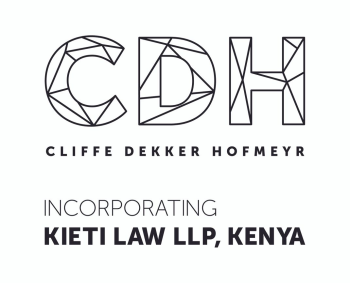Membership-based organisations are fundamental to the sustainability and development of South Africa's economy as they provide vital industry and professional support services to a number of important occupations and trades, ranging from accountants, lawyers and doctors to artisans and engineers. The majority of these organisations operate on a non-profit basis for the benefit of their members and play an important role in increasing employment opportunities in South Africa and improving less developed communities.
Section 10(1)(d)(iv)(bb) of the Income Tax Act(1) provides for the exemption of the receipts and accruals of any company, society or other association of persons established to promote the common interests of persons (members of such company, society or association of persons) carrying on any particular kind of business, profession or occupation which has been approved by the commissioner of the South African Revenue Service (SARS) under Section 30B of the act.
Essentially, Section 30B of the act sets out the requirements that such organisations must comply with in order to receive tax-exempt status from SARS. Section 30B(2)(b)(ix) of the act specifically requires that in order to be approved as a tax-exempt association in terms of Section 10(1)(d)(iv)(bb), read with Section 30B, the founding document of the organisation must provide that "substantially the whole of the entity's funding must be derived from its annual, or other long term members or from an appropriation by the Government of the Republic in the national, provincial or local sphere". While 'substantially the whole' is not explicitly defined in the act, it is widely accepted to mean 85% or more.
In an increasingly interconnected and globalised world, membership-based organisations and the willingness of members to pay membership fees are becoming increasingly less attractive. Section 30B organisations are therefore finding it more difficult to comply with the 85% funding threshold as they do not receive any funds from the government and cannot maintain sufficient membership fees. As a result, many organisations have begun to look elsewhere to source their funding, including receiving fees for the provision of educational activities and training to members (and non-members) on either an ongoing or ad hoc basis.
The provision of training and education by such organisations to their past, present and future members (and in some cases non-members) provides a variety of important functions, including:
- ensuring that all members adhere to certain principles of conduct;
- remaining up to date with ever-changing professional standards and governing legislation; and
- guaranteeing that the training meets international standards.
However, it could be argued that fees derived from the provision of training and educational programmes would not ordinarily fall within the ambit of funding derived from annual or other long-term members, and hence would fall outside the 85% funding requirement, placing the organisation in jeopardy of relinquishing its tax-exempt status.
Notwithstanding this possibility, most organisations provide education and training on a non-profit cost-recovery basis, and it could be argued that such receipts should, in any event, not be taxed. To the extent that the policy is not to tax such organisations on these receipts, there may be merit in extending the partial taxation regime currently governing public benefit organisations to membership-based organisations. In this way, membership-based organisations could maintain their tax-exempt status by not falling foul of the 85% funding requirement, and any receipts or accruals derived from the provision of education and training to its members (or otherwise) on a cost-recovery basis would potentially not be taxable either.
Further, any receipts derived from trading activities would become taxable, while not jeopardising the overall tax-exempt status of the organisations. This solution would be very beneficial to both the sustainability of membership based organisations and the general public as a whole.
For further information on this topic please contact Jerome Brink at Cliffe Dekker Hofmeyr by telephone (+27 21 410 2500) or email ([email protected]). The Cliffe Dekker Hofmeyr website can be accessed at www.cliffedekkerhofmeyr.com.
Endnotes
(1) No 58 Section 10(1)(d)(iv)(bb) [1962].
This article was first published by the International Law Office, a premium online legal update service for major companies and law firms worldwide. Register for a free subscription.'



